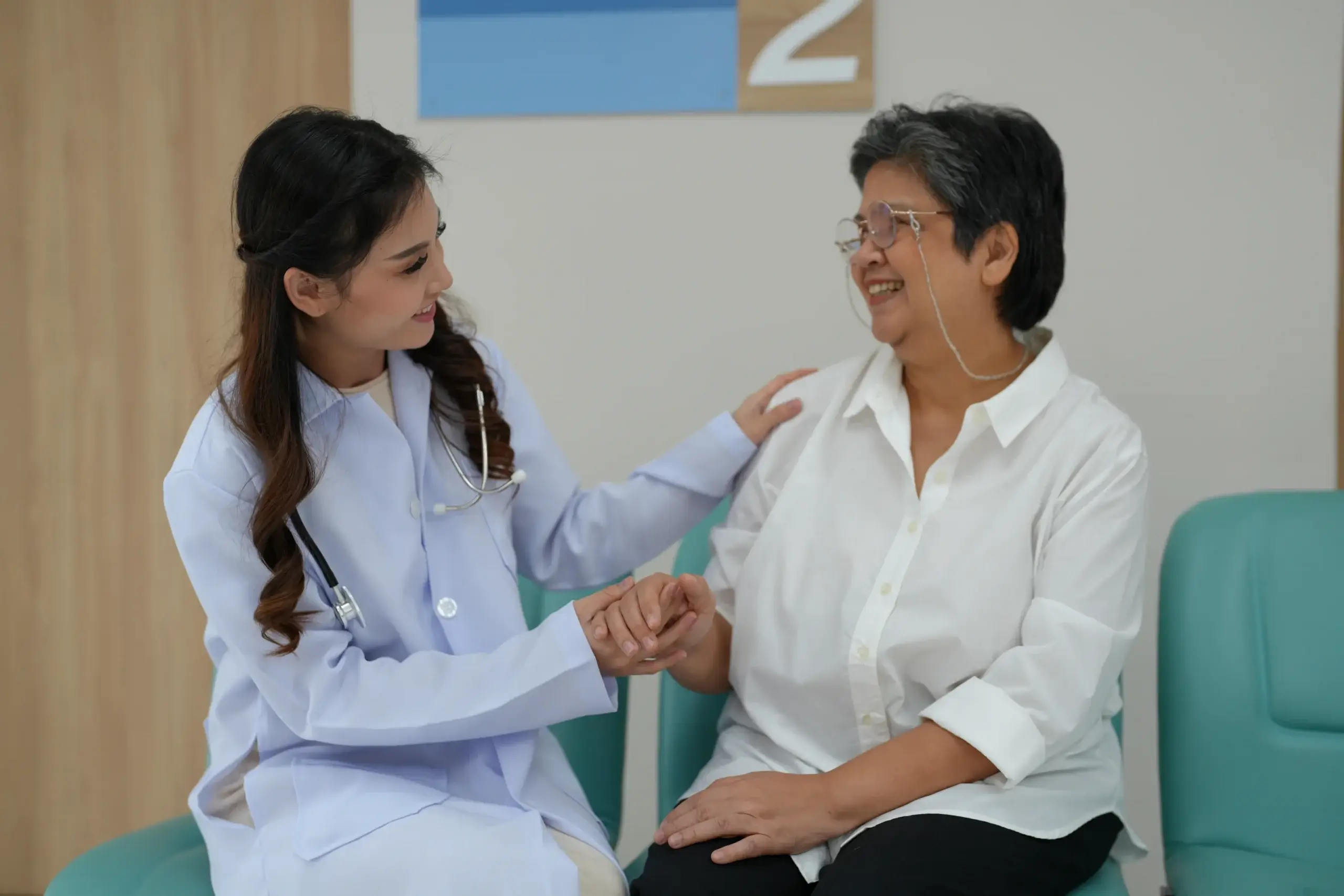
Hormone Replacement Therapy: Everything Women Need to Know for a Healthier Menopause
Menopause is a natural transition that typically occurs around the age of 48.2 years in India. It brings a range of symptoms, with psychological complaints being the most common (80%), followed by musculoskeletal issues (22.2%), vasomotor symptoms like hot flashes (21.1%), and genitourinary or sexual discomfort (3.3%). Despite these challenges, many women remain unaware of available treatments and may feel apprehensive about using hormone replacement therapy. Raising awareness about effective solutions can empower women to navigate this phase with confidence and better health.
Hormone Replacement Therapy (HRT):
Hormone Replacement Therapy (HRT) is a widely used treatment that helps alleviate menopause symptoms by replenishing the body’s diminishing hormone levels. As menopause occurs—typically between the ages of 45 and 55—it marks a significant decline in estrogen and progesterone, leading to a range of symptoms such as hot flashes, irregular menstruation, mood swings, and genitourinary discomfort. These hormonal changes can significantly impact a woman’s well-being, and HRT plays a crucial role in managing these effects to improve overall quality of life.
In India, about 34.02% of women are prescribed HRT or non-HRT alternatives to address symptoms like vasomotor disturbances, genitourinary discomfort, and sexual health concerns. While HRT is commonly used for short-term relief (1–2 years, typically less than 5), its duration varies based on individual needs. Younger women who experience surgical menopause or premature ovarian failure may require longer-term HRT to maintain hormonal balance. By effectively managing menopausal symptoms, HRT offers women the opportunity to navigate this transition with greater ease and comfort.
Considerations for HRT in the Indian Context
Despite the proven benefits, its adoption in India remains limited due to cultural beliefs, lack of awareness, and misconceptions. Many women either do not have access to accurate information or hesitate to seek treatment due to societal perceptions. Research highlights key factors influencing the acceptance and understanding of HRT in India:
- Cultural and societal influences shape treatment choices. In India, menopause is often viewed as a natural phase that requires minimal medical intervention. Many women may hesitate to seek this therapy due to traditional beliefs, family opinions, or societal norms, making open discussions with healthcare providers essential.
- Limited awareness and accessibility remain key barriers. Many Indian women, especially in rural areas, lack adequate information about menopause and its treatments. This knowledge gap prevents them from exploring options like HRT, even when they experience severe symptoms that affect their quality of life.
- Studies reveal poor knowledge and misconceptions about HRT. A study conducted in rural Ernakulam found that only 42% of menopausal women were aware of HRT. Many participants held misconceptions, with 50.6% believing menopause marked the end of their sexual life, and 42.6% viewing the absence of menstruation as a relief rather than a health transition that requires care.
- Preference for natural remedies over medical treatments is common. The same study found that 80% of women preferred natural approaches instead of HRT, often due to concerns about medical interventions. Additionally, 76–86% believed that HRT carried significant risks and complications, further deterring them from considering it as a viable treatment option.
- The need for education and open dialogue is crucial. Given these misconceptions, improving awareness about hormone replacement therapy through healthcare professionals, community programs, and media can help women make informed decisions and access the support they need for a smoother menopausal transition.
Benefits of Hormone Replacement Therapy (HRT)
It offers significant relief from menopausal symptoms while supporting long-term health. By replenishing declining hormone levels, women can handle menopause with greater ease and improved well-being.
- Relieves Menopausal Symptoms: HRT effectively reduces hot flashes, night sweats, mood swings, and sleep disturbances, allowing women to maintain their daily routines without discomfort.
- Supports Bone Health: Estrogen plays a key role in maintaining bone density, and HRT helps prevent osteoporosis, reducing the risk of fractures as women age.
- Enhances Skin and Hair Health: By improving collagen production, HRT can help maintain skin elasticity and hair strength, counteracting some visible signs of aging.
- Boosts Energy and Mental Well-being: Many women report improved energy levels, mood stability, and cognitive function, contributing to an overall sense of vitality.
Making an Informed Choice
While HRT provides numerous benefits, it’s essential to personalize your treatment based on individual health needs. Consider the following factors before starting:
- Evaluate Personal Health: Discuss your medical and family history with a healthcare provider to determine the best HRT approach for you.
- Assess Symptom Severity: Identify how menopause symptoms are affecting your daily life and overall well-being.
- Work with a Trusted Professional: Consulting a specialist ensures you receive expert guidance tailored to your specific health needs and goals.
With the right approach, HRT can be a powerful tool in helping women embrace menopause with confidence and comfort.
Recommendations for Women Considering Hormone Replacement Therapy (HRT)
To make the most of this therapy, women should take a proactive approach to their health by considering the following recommendations:
- Open Dialogue with Healthcare Providers: Women should have open, informed discussions with doctors to explore suitable management options based on their personal health history, symptoms, and cultural background.
- Education and Awareness: Increased awareness initiatives are crucial to empowering women with accurate information about menopause and HRT, helping them make confident, well-informed decisions.
- Individualized Approach to Treatment: HRT should never follow a one-size-fits-all model. Healthcare providers must tailor treatment plans to each woman’s unique needs, ensuring optimal benefits.
- Regular Health Check-Ups: Routine screenings and medical evaluations help monitor the effectiveness of HRT and allow for timely adjustments to the treatment plan if needed.
- Lifestyle Support for Better Outcomes: A healthy diet, regular exercise, and stress management techniques complement HRT, enhancing overall well-being and long-term health benefits.
- Access to Trusted Resources: Women should seek guidance from reputable medical sources, support groups, and communities that provide up-to-date, evidence-based information on menopause and HRT.
- Encouraging Conversations in Families and Communities: Breaking the silence around menopause can help women feel more supported and confident in seeking the care they need. Spreading awareness within families ensures better emotional and social support.
- Removing Stigma Around Menopause and HRT: Societal perceptions often prevent women from considering HRT. Encouraging positive discussions about menopause as a natural transition can help normalize conversations around treatment options.
Menopause is a transformative stage in a woman’s life, and this therapy offers a proven way to manage its challenges effectively. While awareness and access to treatment in India remain limited, open conversations, individualized care, and proper education can help women make informed decisions about their health. By embracing the right treatment options and lifestyle adjustments, women can experience menopause as a phase of renewed strength and vitality.
FAQs
Yes, in addition to relieving common menopausal symptoms, HRT can also improve joint pain, prevent vaginal dryness, and support better sleep quality. Some women also report improved concentration and cognitive function.
The benefits of HRT are most effective when started within 10 years of menopause or before the age of 60. However, younger women who experience early menopause or surgical menopause may begin HRT earlier under medical supervision.
While menopause itself can lead to metabolic changes and weight gain, HRT may help in maintaining muscle mass and preventing excessive fat accumulation. However, diet and exercise remain essential for long-term metabolic health.
Yes, HRT is available in various forms, including oral tablets, skin patches, gels, creams, and vaginal inserts. The choice of administration depends on a woman’s symptoms, lifestyle, and medical history.
Most women begin to feel relief from symptoms within a few weeks, but full benefits may take up to three months. Regular follow-ups with a doctor help ensure optimal results and adjustments if needed.




